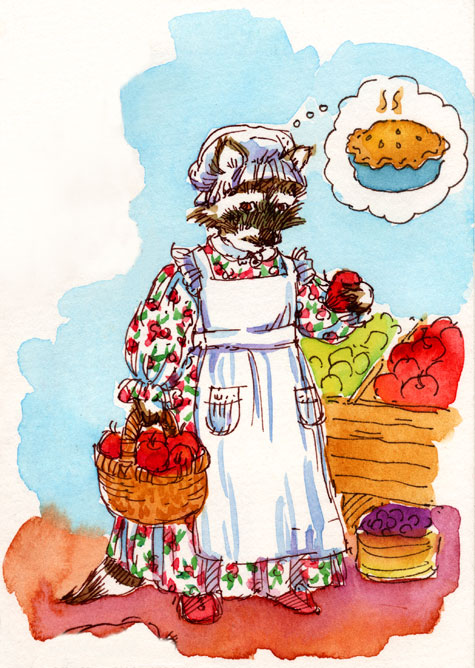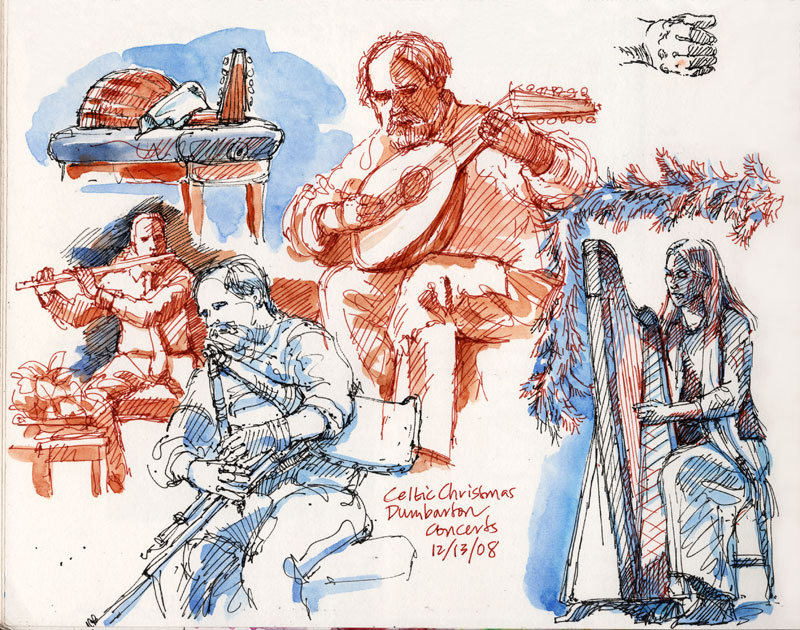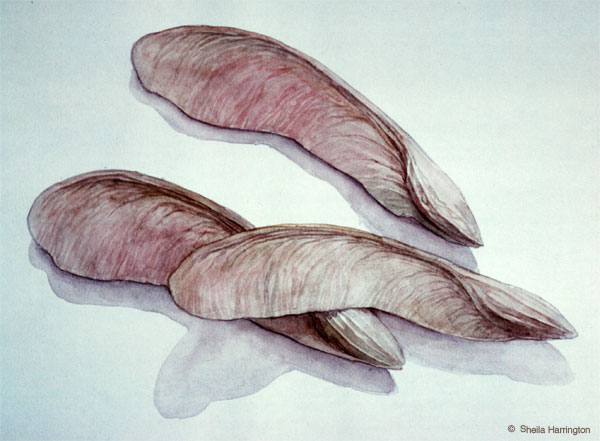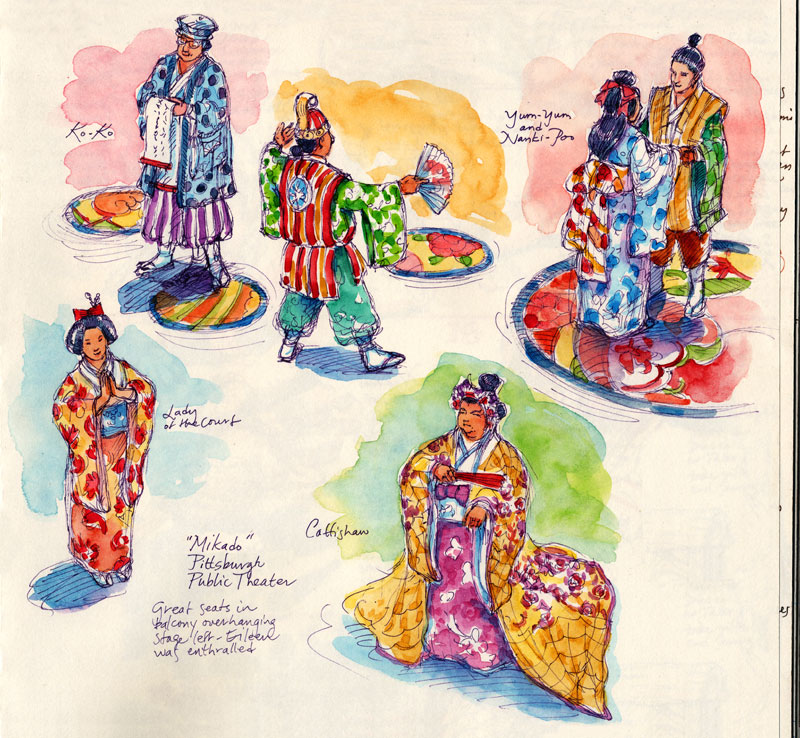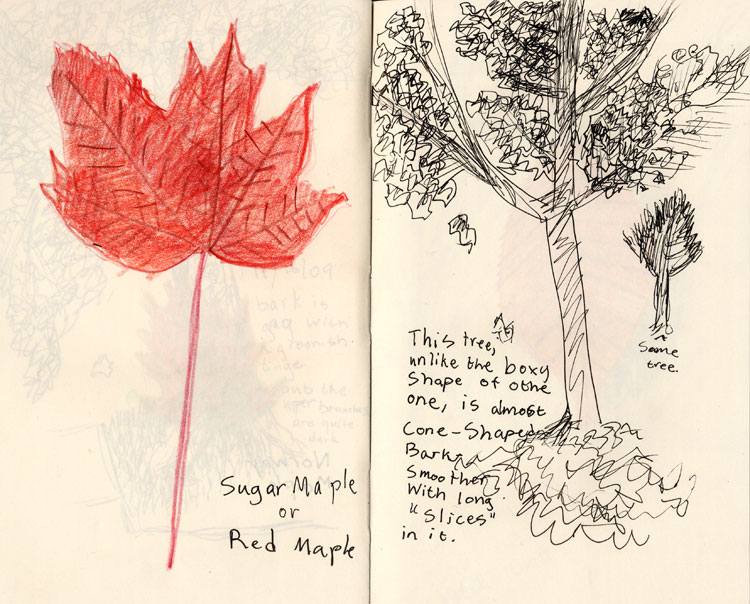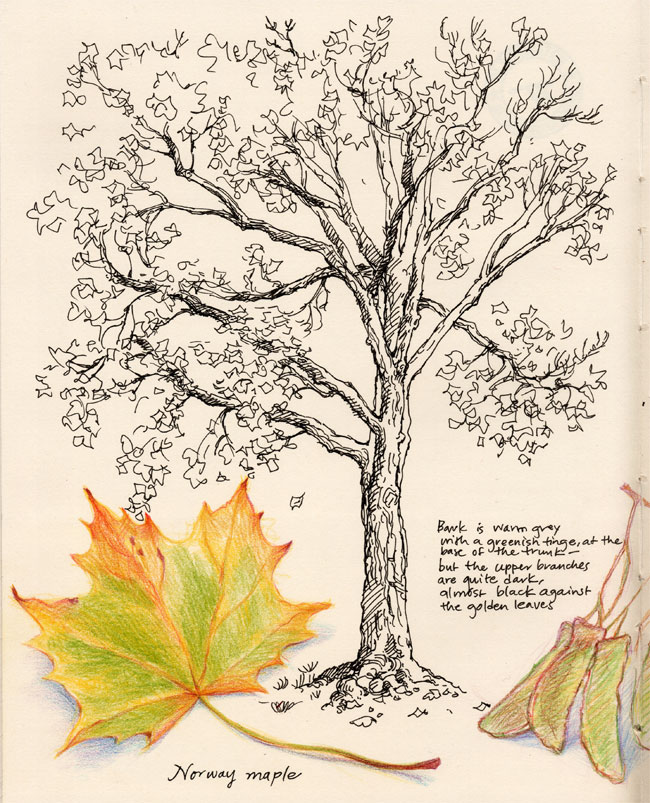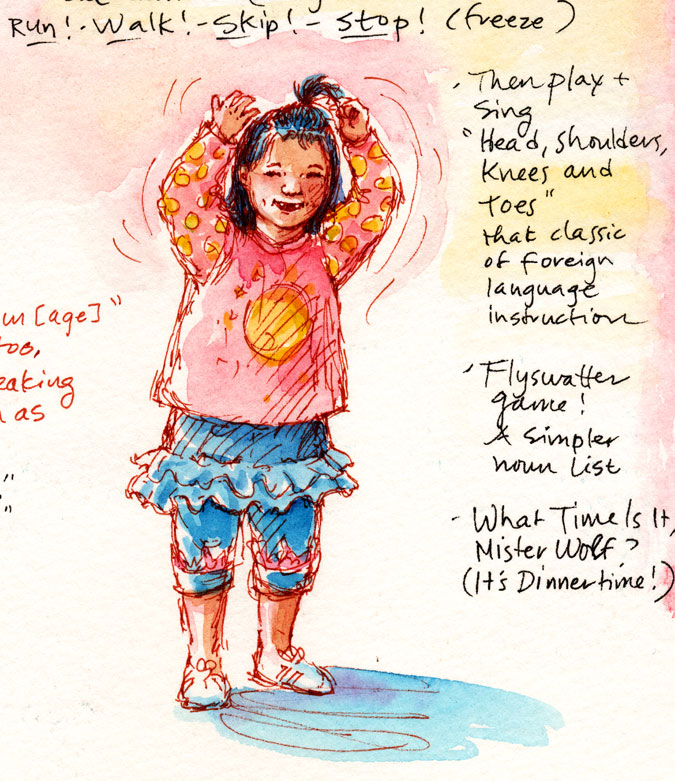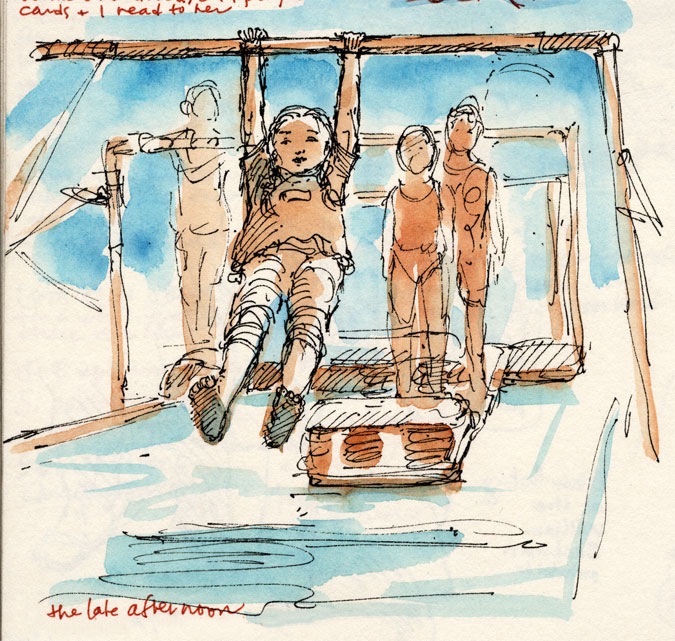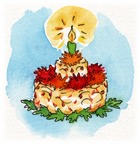Celtic Christmas
Today is the feast day of St. Cecilia, my saint-name-day (Sheila being the Irish form of Cecilia). St. Cecilia is the patron saint of music, a fact that has always pleased me—irrationally, considering I have no musical talent beyond the ability to sing lullabies relentlessly for hours to restless children.
Anyway, in honor of St. Cecilia, I post this tribute to a wonderful holiday concert that my husband and I attend every year with a group of friends: Celtic Christmas, at Dumbarton Church in Washington, DC. This concert is difficult to describe. It takes place by candlelight in a beautiful old church in Georgetown, and includes traditional seasonal music, unusual obscure pieces, and original compositions, which vary from year to year. The incredibly diverse Linn Barnes plays lute, guitar, banjo, harp-guitar, and Uillean pipes. Allison Hampton plays Celtic harp as if descended from on high to share the music of the spheres. Their performances are heightened and deepened by those of amazing flutist Joseph Cunliffe and percussionist Steve Bloom.
Pieces are interspersed with Barnes’ anecdotes both serious and humorous providing historical background (here is a man serious about music). Other pieces are accompanied by Robert Aubry Davis reading evocative seasonal poetry and prose that he researches especially for the concert (here is a man serious about literature).
This annual event sweeps us into the spirit of a joyful yet poignant Christmas. We depart expecting to step out into softly falling snow, listening for sleigh bells, the call of the heavenly host, and the distant howl of a wolf.
Throw Yourself Like Seed
A poem, and a watercolor, for late autumn.
Shake off this sadness, and recover your spirit sluggish you will never see the wheel of fate that brushes your heel as it turns going by, the man who wants to live is the man in whom life is abundant. Now you are only giving food to that final pain which is slowly winding you in the nets of death, but to live is to work, and the only thing which lasts is the work; start then, turn to the work. Throw yourself like seed as you walk, and into your own field, don’t turn your face for that would be to turn it to death, and do not let the past weigh down your motion. Leave what’s alive in the furrow, what’s dead in yourself, for life does not move in the same way as a group of clouds; from your work you will be able one day to gather yourself.—Miguel de Unamuno
On the Vanity of Earthly Greatness
Today, on the birthday of humorist Arthur Guiterman (1871-1943), I post one of his poems, along with a monument to a mouse.
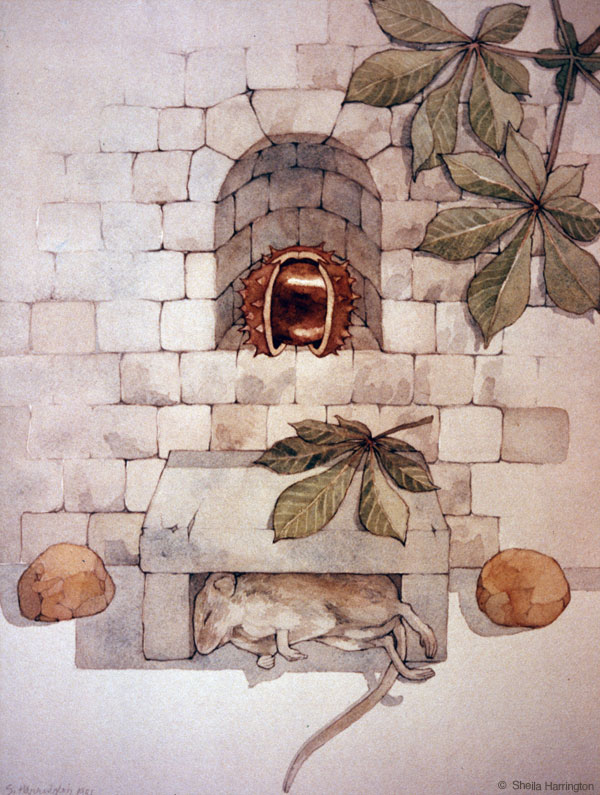
The tusks which clashed in mighty brawls
Of mastodons, are billiard balls.
The sword of Charlemagne the Just
Is Ferric Oxide, known as rust.
The grizzly bear, whose potent hug
Was feared by all, is now a rug.
Great Caesar’s bust is on the shelf,
And I don’t feel so well myself.
On Deadline
For He Is An Englishman
Today is the birthday of humorous librettist, dramatist, and director W.S. (William Schwenck) Gilbert (1836-1911), a man who knew how to make a line scan perfectly. It makes singing his verses so very satisfying.
In his honor, I post these sketches from a fabulous performance of The Mikado, probably Gilbert and Sullivan’s best-known and most often performed comic opera. This one took place at the Pittsburgh Public Theater a few seasons back.
The “Japanese” names, like the nonsensical G&S plots and their occasionally offensive point of view, must be taken, like most forms of entertainment, in historical context—this one, that of a supremely confident 19th-century colonial power. It’s still fun.
Red/Sugar Maple
Another neighborhood tree sketch, this one by my daughter. If this IS a sugar maple, does that mean we could be tapping trees right here in Woodley Park, DC?
Norway Maple
Shichi-Go-San
I don’t know what life in Japan is like for grown-ups, but for little children it looks pretty idyllic. Once young Japanese reach The Age of Reason, expectations for academic achievement and responsible, community-oriented behavior are quite high. But until then, Japanese (and other) children are cherished, admired, and doted-upon. Storekeepers, gas station attendants, and truck drivers keep handy stashes of sweets and tiny toys should some little one toddle by. Children are dressed in impossibly adorable clothes. Mothers are experts at the “distract and re-direct” method of discipline rather than giving the outright NO. It’s a world of bliss. When we visited our son during his stint of teaching in Japan, our daughter, then age eight, was so relentlessly and universally coddled that it’s a wonder she was willing to return home with her mean old parents.
Today is the Japanese autumn festival of Shichi-Go-San, which translates as “Seven-Five-Three.” It is a rite of passage for children. On this day (or the nearest weekend), girls age seven, boys age five, and boys and girls age three dress in traditional garb, perhaps for the first time (although this is unfortunately giving way to Western clothing) and visit Shinto shrines with their families to pray for good health and long life. Afterward the children are given “thousand-year-candy” packed in wrappers decorated with turtles and cranes, both symbols of longevity.
We weren’t visiting during Shichi-Go-San (although when I was seven and living in Japan I did attend the festival, appropriately attired in kimono and obi, but that’s another story). So I post this sketch of a little girl from one of my son’s classes, with the typical seven-year-old gap-tooth smile, playing one of their English-language games.
Mother of Pippi
There are some people who give joy not only during their time on this earth but who continue to spread it after they have moved on. One of them is Astrid Lindgren (1907-2002), whose birthday is today, and whose fruitful 94 years brought forth so many literary offspring. Her best-known heroine, Pippi Longstocking, was an icon of my childhood, and then of my children’s, and she will undoubtedly bring smiles to the faces of my grandchildren, if I am someday fortunate enough to have them. But we also love Lindgren’s other books, including stories of the rambunctious Emil and Lotta, and Ronia the Robber’s Daughter, and especially the lively, funny and cozy Children of Noisy Village, which lets us pretend for a while that we are living in small-town Sweden.
I post this sketch of my own active little “Pippi” in honor of the day. Happy, happy birthday, and many thanks, Astrid Lindgren. I hope the afterlife resembles Noisy Village.

